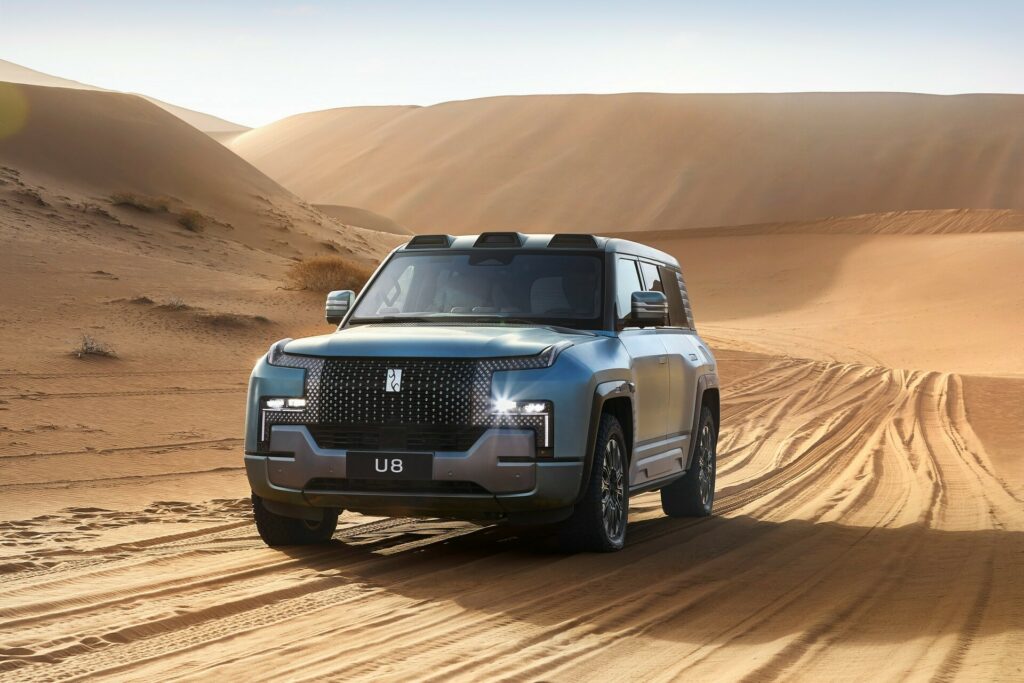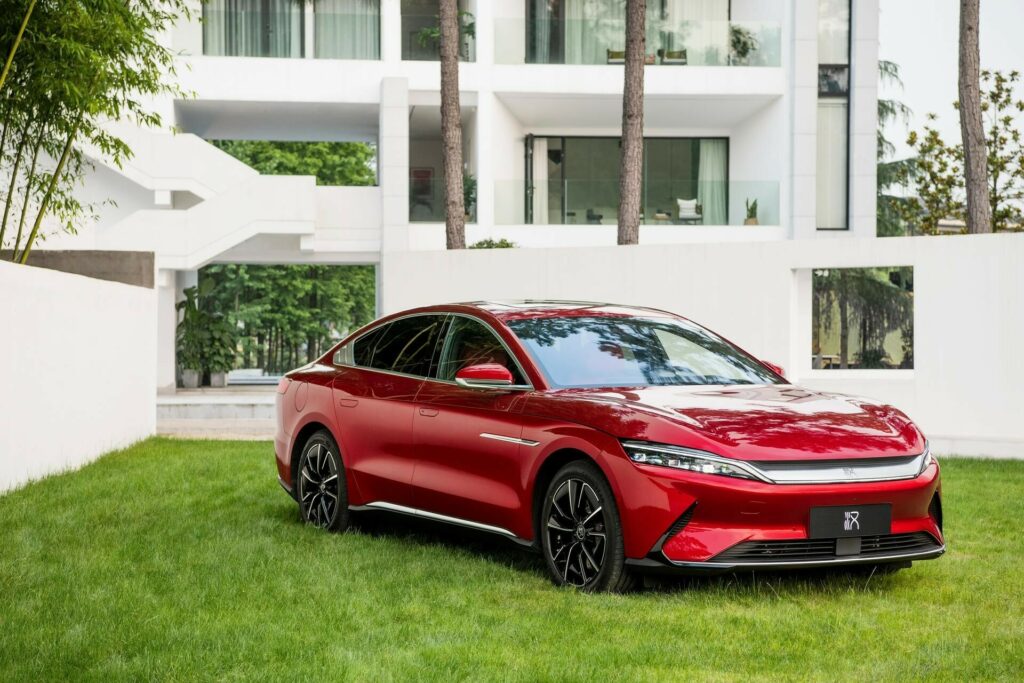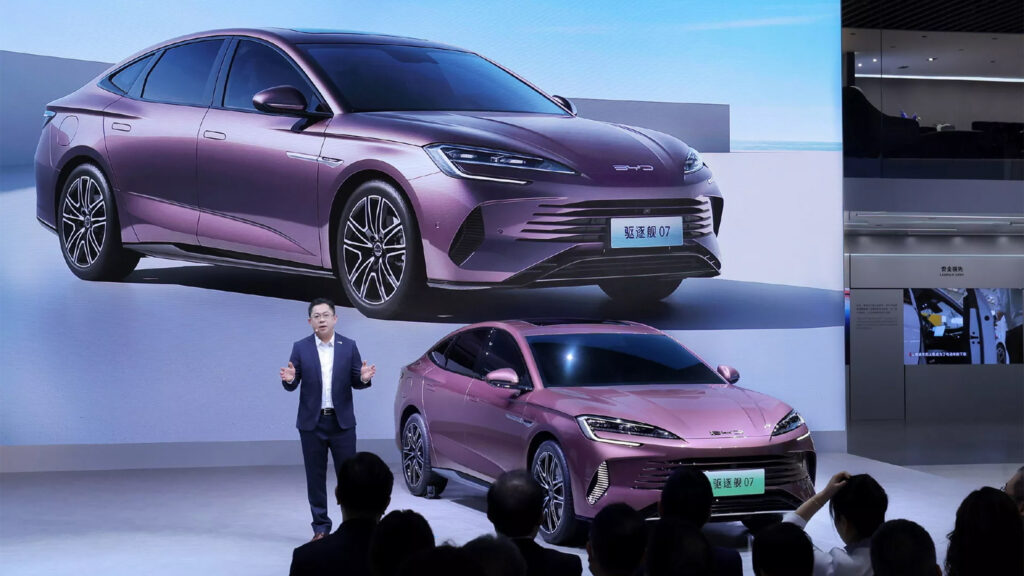BYD has revealed it will invest approximately 100 billion yuan ($14 billion) into the development of smart car features that will include a more advanced semi-autonomous driving system.
The firm’s chief executive and founder, Wang Chuanfu, made the investment announcement earlier in the week but failed to specify a time frame for it nor did he provide many details. One system that the world’s largest EV manufacturer is developing is Navigation on Autopilot that will permit drivers to take their hands off the wheel and feet off the pedals in certain situations.
Bloomberg reports this system will require drivers to touch the steering wheel every 15 seconds and come installed in cars that cost more than 300,000 yuan ($42,000), whereas it will be an optional accessory in BYD’s cheaper models. This system has already been fitted to the Denza N7 EV and will be added to the brand’s YangWang luxury models soon.
Read: This Is All We Know About The 2025 BYD Pickup

A number of other interesting pieces of tech are being developed by the car manufacturer. For example, the YangWang U8 will be available with a drone with its own housing case while the steering wheel has also been designed so it can detach from the steering column and be used to play games. Additionally, BYD is working on adding palm-print motion sensor technology that will allow drivers to open car doors simply by waving at them.
Technologies like these are becoming increasingly important in China. Xpeng is one of the leaders in driver-assistance systems and offers its navigation-guided pilot system in 52 cities across the country. The system relies on a vehicle’s Lidar sensors and camera and is able to handle the accelerating, braking, make lane changes, and even detect traffic lights.
BYD’s investment into smart car technologies comes at the same time the firm is investing heavily in making its own cargo ships. Last week, the carmaker took delivery of its first cargo ship that’s capable of carrying up to 7,000 vehicles at a time. It will take delivery of a further 7 cargo ships over the coming two years.




